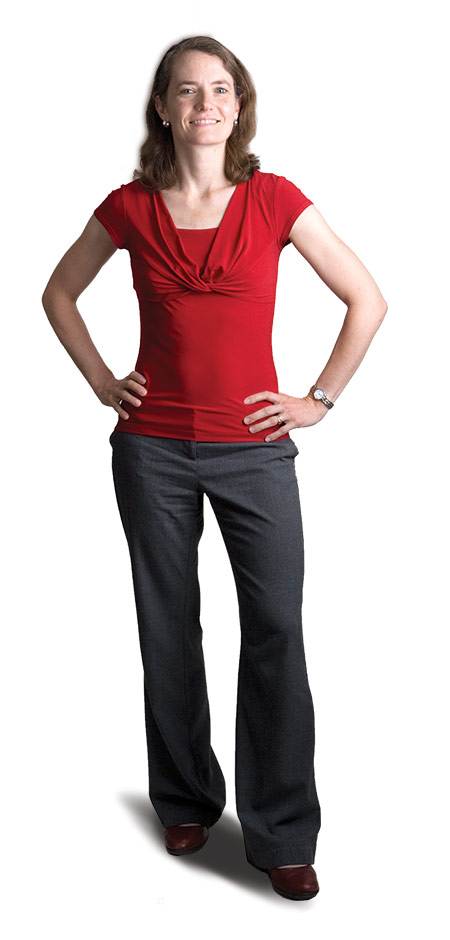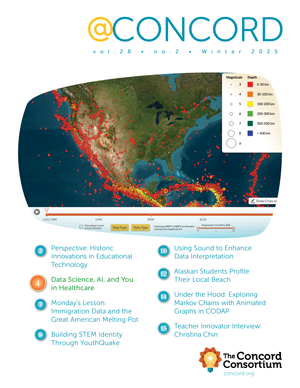Innovator Interview: Jen Goree
 Q. Tell us about your background.
Q. Tell us about your background.
A. I wrote my first computer program for statistics education in 1979. It was a game called “Guess My Bag” for the 8K Commodore PET. You drew colored balls from three bags and tried to figure out which bag you were drawing from. I’ve been working on stuff like that ever since.
Q. Tell us about the path you’ve traveled in educational technology.
A. I discovered I really liked programming during a high school math class. In college I enjoyed using code to structure an elegant solution to a problem. I was interested in how technology could solve real problems, especially in education. I worked on educational software back in CD-ROM days and on websites for educational publishers. Then I worked for a large school district near Seattle so I could understand the instructional and administrative sides. After several years, I moved back East and worked for the Massachusetts Department of Education to see what happens at a larger scale. But I really wanted to get back to the instructional use of technology.
Q. What surprised you in the classroom?
A. I was always pleased to see the enthusiasm of individual teachers and their willingness to try new things. It was great to be around people who want to make a difference in the future of their students.
I’m now married to a teacher—he’s my focus group of one. I like learning about his challenges of connecting with kids and what works with technology in his classroom.
Q. Were there cases at the state level that were making a difference?
A. The best initiatives were the ones where they brought teachers and principals in from the beginning and asked how it would work best for them on a day-to-day basis. Working with these district partners, we tried to scale up the solution, rather than starting at the state level and pushing an initiative down.
Q. How does your background inform your current work?
A. Having a technical background is helpful with developers even if I’m not getting into every technical detail. I use my background in project management all the time to plan, communicate, look out for risks and keep people involved. And my background with schools, districts and larger scale rollouts helps me understand classroom challenges.
Q. What insights did you gain from your MBA?
A. I wanted a better background in management and leadership. Most people in the part-time program were working, and our conversations were richer when people brought in their workplace experiences. It was also interesting to reflect on how we were using technology in our classes. Simulations were some of the most effective lessons. There’s nothing like being fired by a computer!
Q. What was your experience in computer science?
A. There were few women in computer science in college, so we banded together, and the computer science department was very supportive. In Seattle I volunteered with a science and technology conference. Hundreds of middle school girls came to make ice cream using liquid nitrogen or swab their cheeks and make
jewelry from their DNA. It was great to see how even a brief exposure can make science come alive.
Q. What do you do outside of work?
A. If I had free time … (laughs). I have two boys (nine months and three and a half years old). We like going outside as a family. I’m looking forward to the day when the kids will be big enough to do more hiking and camping.
Q. What do you most enjoy at Concord?
A. I really like the spirit of invention, the creativity that people bring to solving problems with technology. They’re not looking at what’s currently done, but what can be done.
